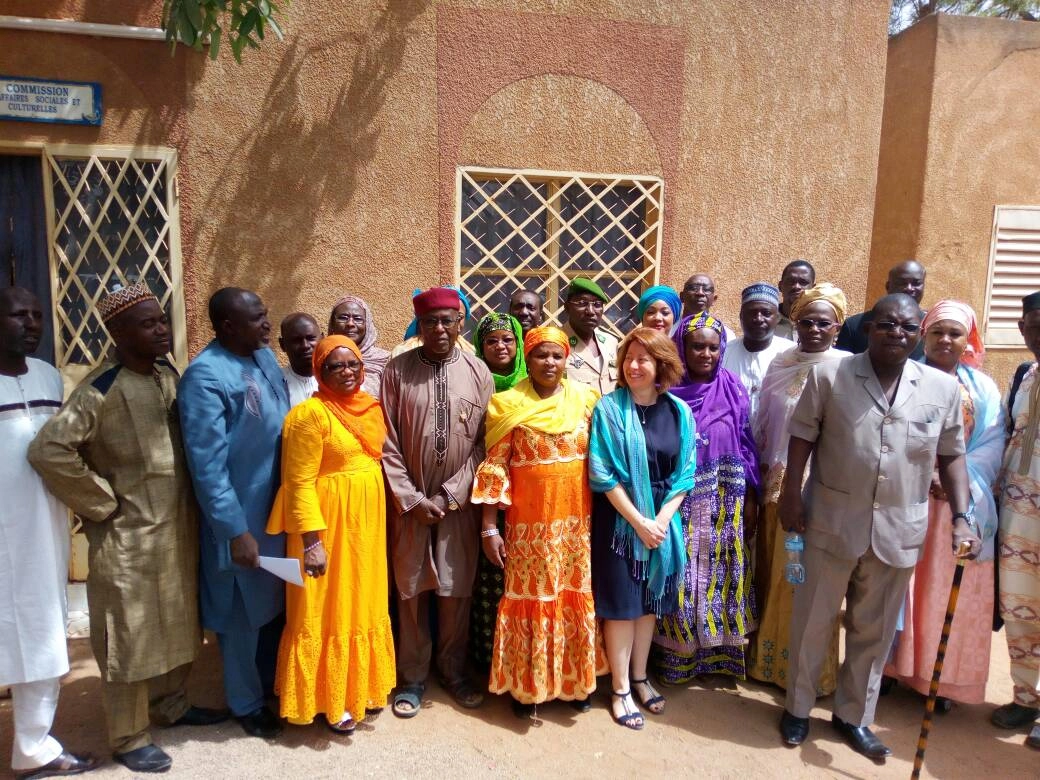The Prince's Government Brings Together Five Associations that Work to Combat Sickle Cell Disease in Niger
Published on 19 April 2018 at 12:00 - Modified the 2 August 2024 at 03:02

Les associations du réseau « Drépanocytose Afrique de l'Ouest Madagascar » accompagnées par Mme Anne Poyard-Vatrican, Adjoint à la Direction de la Coopération Internationale, reçues à l’Assemblée Nationale du Niger. ©DCI
From 3 to 6 April, the Department of International Cooperation of Monaco held a workshop in Niamey, Niger, which brought together five patients' associations that are members of the "West Africa-Madagascar Sickle Cell Disease" network.
At this workshop, participants were able to share their experience and benefitted from training in strategies and techniques for obtaining funding. The discussions also focused on the associations' support with distributing a medical guide for the harmonised management of sickle cell disease, financed by Monaco, which will be launched on 19 June 2018, on the world day devoted to this disease.
As a side-event of this workshop, the associations visited the National Centre for Combating Sickle Cell Disease, which is supported by the Prince's Government and monitors almost 6,000 patients affected by the disease, 40% of whom are children.
Finally, the associations, accompanied by Ms. Anne Poyard-Vatrican, Deputy Director of the Department of International Cooperation, were received at the National Assembly of Niger by MPs who are members of the Social Commission, to raise their awareness of this disease. The delegation was also received in a private audience by the Minister of Public Health, Dr. Idi Illiassou Mainassara.
The "West Africa-Madagascar Sickle Cell Disease" network was founded in 2013 by Monaco's Official Development Assistance authorities. It is comprised of doctors and representatives of patients' associations from six countries (Senegal, Burkina Faso, Mali, Mauritania, Niger and Madagascar). Its aims are better management of the disease and raising awareness of the disease among a broad public.
As a reminder, sickle cell disease, a hereditary disease that affects haemoglobin, is the most prevalent genetic disease in the world - according to the World Health Organization, 50 million people are carriers of sickle cell disease, and it is estimated that one out of two children who are affected by the disease will die before the age of five unless they receive treatment.